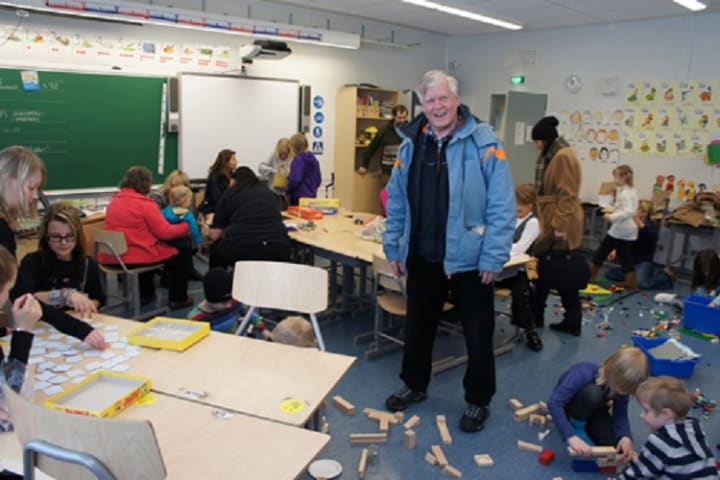Motivational Teaching - Motivated Students #2
Children Learn Better if... 10 Crucial Facts

“Tell me and I forget. Teach me and I remember. Involve me and I learn.” Benjamin Franklin
If you retrospect to school years, how would you describe that period of time? Joy, fun, pleasure?... Or, maybe, boredom, tiredness, stress?...
These are ten useful facts which will help not only teachers, but also parents, about what helps children learn better.
1. Children learn something easily if it is interesting for them.
Young people and children will learn something quickly and easily if it is fascinating and important for them, from their point of view, from the perspective of their own experiences. The most talented and versatile teacher won’t be able to teach students something if it is not fascinating enough for them, if they don’t see a point of learning it.
“Do I really need it? Solving quadratic equations by factorising?”
From a scientific point of view, children’s brain do not respond to what is important or valuable according to the Department for Education but only to what they consider to be significant on the basis of their own assessment.
“How to convince students that it’s intriguing and useful to learn about enjambments in poems?”
2. Children learn better when they feel safe and confident.
If a child is stressed at school, feels unsafe, or insecure and uncertain, forget about an effective learning process.
“The most common fear in school years is the fear of failure!”
3. Children’s brains will memorise something quicker if positive emotions are involved.
Amusement. Admiration. Excitement. Joy. Surprise. Satisfaction. Sympathy. Triumph…
4. Children’s brains need rest.
In order to use their potential and deal with a large amount of new information and knowledge, children and their brains need rest and time to regenerate. According to scientists, during sleep or relaxation periods of time, our brain select, sort, and update knowledge acquired during the day and during our entire life.
Parent: “How much sleep does my child need?”
National Sleep Foundation: “School-age children (6 - 13 years): 9-11 hours per day. Teenagers (14 - 17 years): 8-10 hours per day. Younger adults (18 - 25 years): 7-9 hours per day.”
5. Children learn faster in a natural setting.
If you want children to work creatively, they must be able to participate in outdoor activities, in natural surroundings—in a park, forest, just simply outside the classroom walls. Children’s brains are unable to function actively when they are forced to stay at school for up to eight hours per day.
- “How long is the school day in Finland?” (Finland has held the unofficial title as the country with the world’s best education system, since 2000.)
- “The school day starts between 8 and 9 AM and finishes between 1 and 2 in the afternoon. 25 lessons per week. Each lesson is 45 minutes long.”

A Lesson in One Finnish School...
6. Children learn better and faster by doing, creating, practising…
Children understand, learn, and memorise better when they experience something. They cannot learn things that are absolutely incomprehensible to them at the level of their perception. To understand new issues, they have to discover them themselves, make an analysis, and draw appropriate conclusions. When we allow them to act, design, observe, reveal, invent, spot, identify, and explore, neurochemical substances are activated in their brains and the natural and active learning process begins.
“Active learning is a form of learning; it is a process that has student’s learning in its centre. Active learning focuses on how students learn, not just on what they learn.”
7. All make mistakes.
Sometimes school, and more often parents, don’t allow mistakes. Very often, mistakes are treated as a sign of being weaker, less competent, less knowledgeable, and stupid… Do you feel that every word has been said is like hammer beats which destroy child’s self-esteem? This approach intensifies children’s fear of trying and seeking solutions. If a child is ashamed and afraid of making mistakes, in his brain the processes which are responsible for learning and the effective search for solutions stop.
“We know that we all make mistakes that we simply aren’t conscious of. But it would seem that awareness of an error plays an important role in being able to correct your behaviour in the real world,” says Redmond O’Connell from Trinity College Dublin. “That has been harder to demonstrate in the lab, but there is now some data that suggests that being aware of your errors leads to improvement in performance later on.”
8. Children learn better in a group.
So true…
9. Children’s brains need physical activities.
I do not mean only PE lessons. It is advisable that children leave their seats and move (walk, jump, etc.) at least once during a lesson. It improves their concentration, engagement, creates an illusion of a break, and all this results in increasing students’ motivation.
10. Children need unconditional love.
Children develop and learn better when they are surrounded by an aura of understanding and acceptance. They follow and cooperate more willingly with adults who respect and trust them. Building strong and true relationships with children is the basis for the development of their innate ability to learn.
At this point, it is impossible to disagree with a German neurobiologist and psychotherapist, Joachim Bauer,
“Without good positive relationships, there is no effective learning. Whoever believes that building good, positive relationships in a classroom is a waste of time, and prefers focusing on the implementation of the curriculum, he does not understand the nature of the learning process and will never be an effective teacher.”
About the Creator
Lubow Dabrowska-Szpakowicz
Firstly, I am a teacher...
Secondly, I am an artist...
I love gardening, photography and psychology...
Gym, swim, travelling and






Comments
There are no comments for this story
Be the first to respond and start the conversation.